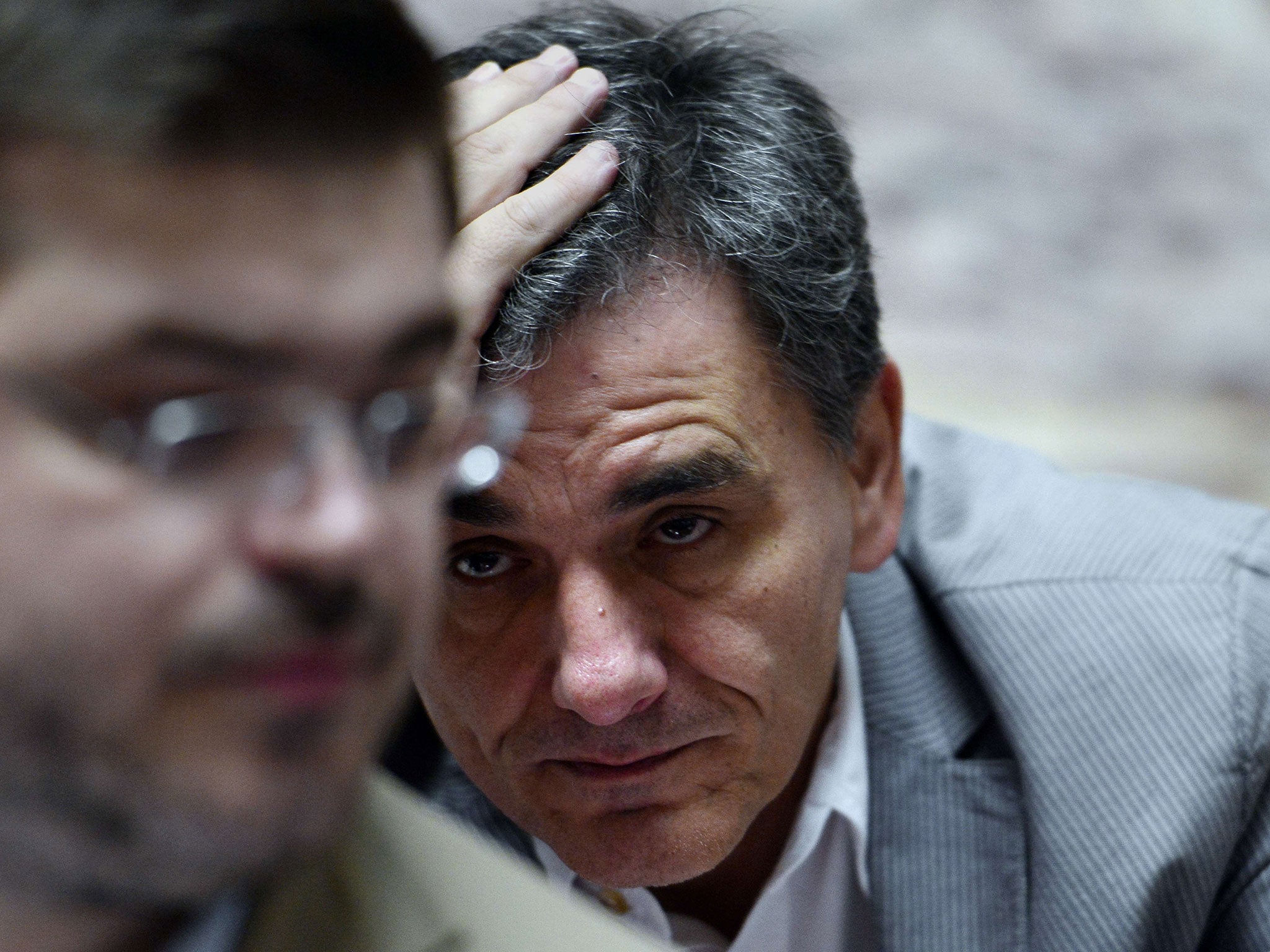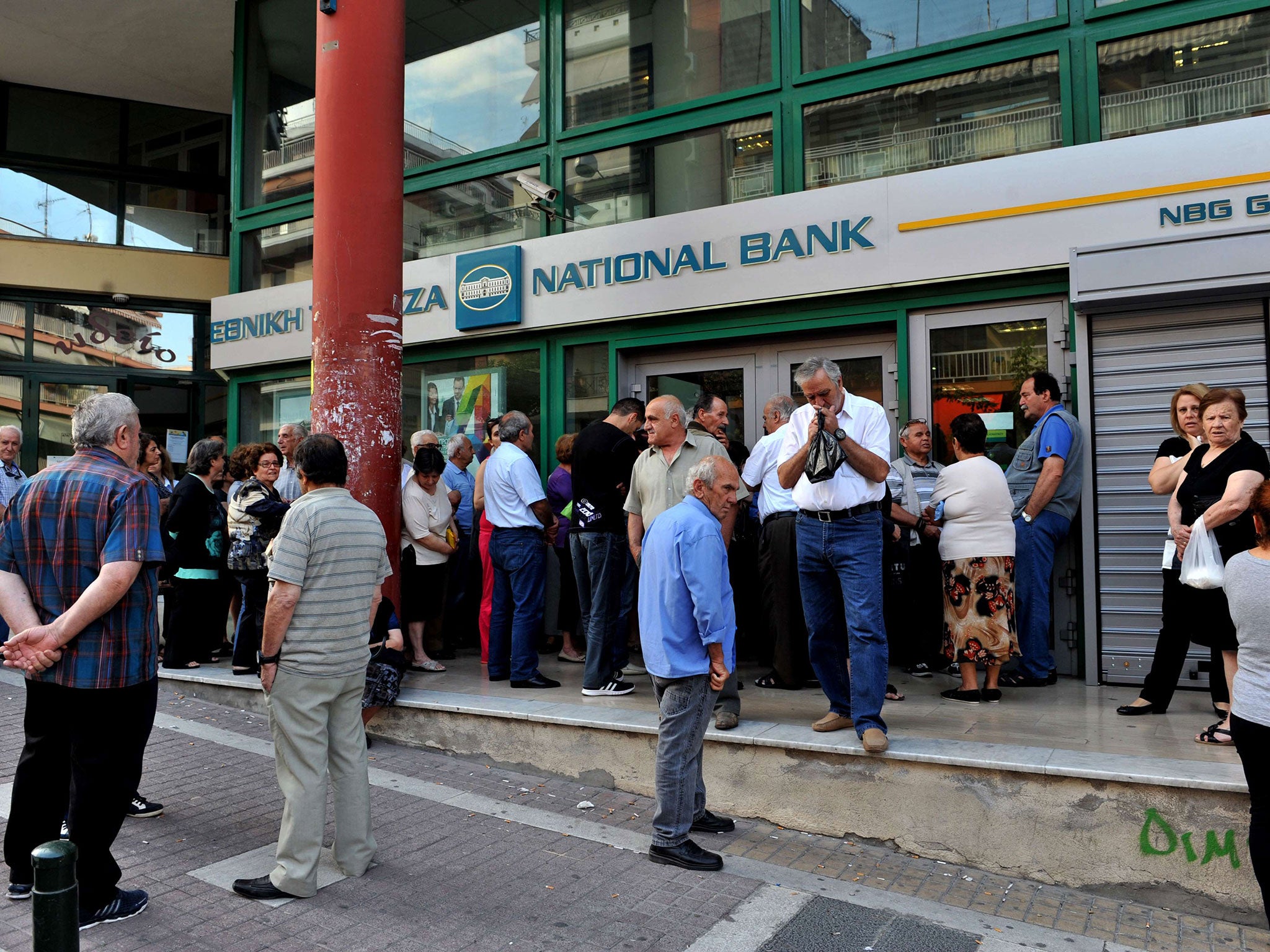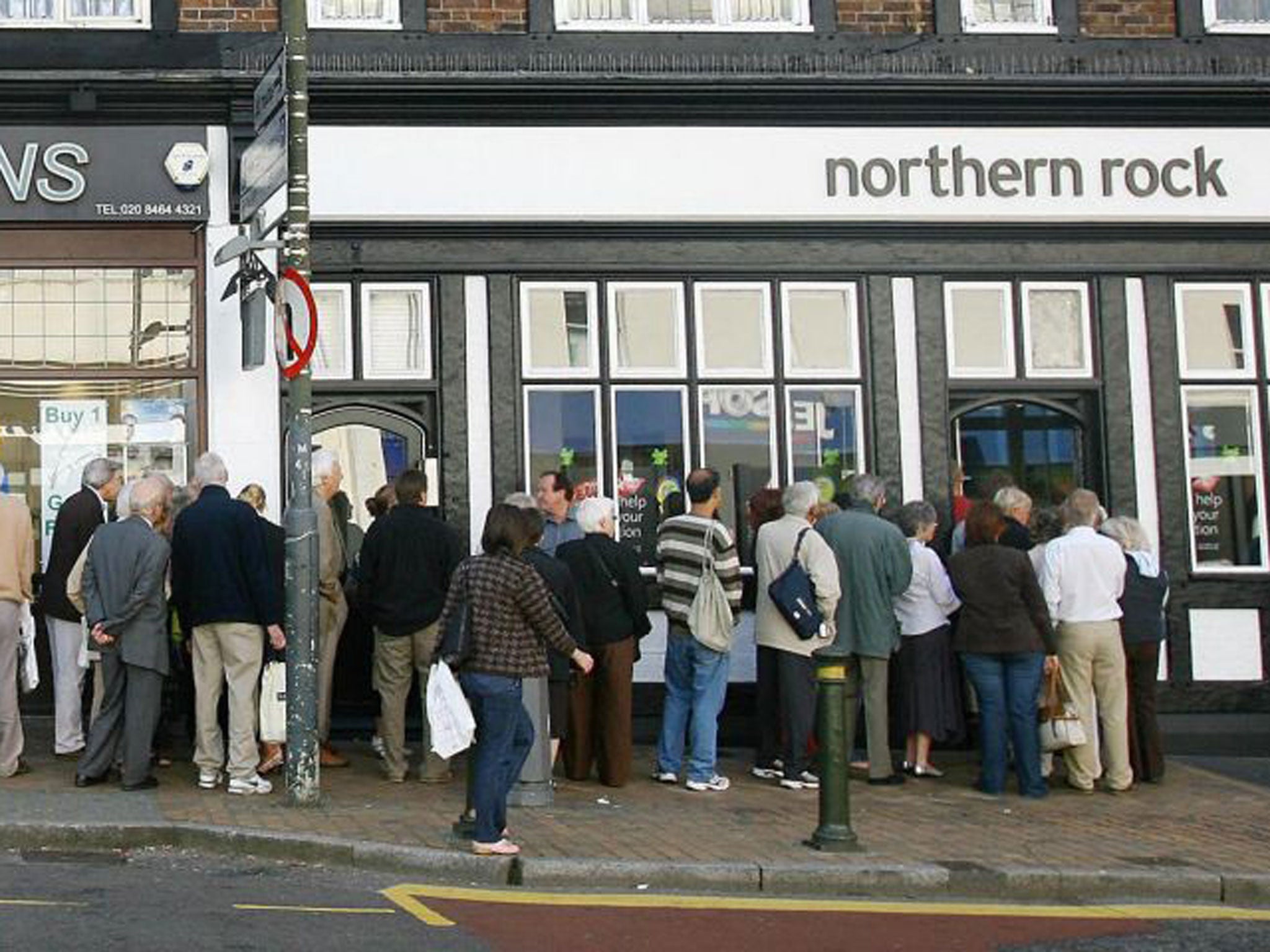Five things you need to know about banking
Sean O’Grady explains the intricacies of deposits, loans and multipliers – and why the system crashed in Greece

Are Greece’s banks close to collapse?
Yes, but…
“Greek banks close to collapse” is a headline you will have seen many times in recent weeks, and an accurate one, too, as it happens. Cast your minds a little further back, however, and you will also recall seeing “American banks face collapse” and, more painfully, “British banks close to collapse”. Remember Northern Rock? In the 19th century and earlier, banks very often went bust.
Yet how can an institution that is itself built on money, ‘face collapse’?
The answer is that the banks lend your money out, a necessarily dangerous business, though entirely legal and essential to the functioning of a modern economy. It is little understood. I well recall reading a letter from a reader in about 2008 on this conundrum. His exact words I forget, but they were along the lines of: “When I put my money in the bank I expect them to look after it. Can you please tell them to stop lending my money out? Yours, Angry Depositor.”

What do banks do with my money?
They lend it out. This is how they make their money, create money, provide companies with cash to invest – admittedly in more or less socially useful projects – and thereby promote economic growth. When you deposit money in the bank – usually electronically, through a balance transfer of wages or a pension – it is unlikely you will pull the lot out on pay day. There are not enough notes and coins around to do so, anyhow – “cash” is only a small part of the stock of “money” in the economy. Most money is just an entry on a spreadsheet or the like. Yes, a frightening thought.
Therefore the bank has all this electronic money and a bit of cash lying around which could be put to better use. So they lend it to others. When they, in turn, lend it to someone else then that person makes a fresh deposit at their bank – which enables that bank to lend most of it out, and on it goes. This is the “banking multiplier”.
Is this a good thing?
Yes and no. It provides “liquidity” – loans for businesses to buy stocks and raw materials, and for you to lease a car or get a mortgage and so on. It is bad because of an inevitable “maturity mismatch”. All that means is that they lend the money out for a long time – say 25 years for a mortgage or six months for a bridging loan: but you can stroll down to your nearest cashpoint and, if you want, take your entire deposit out in the middle of the night with no notice. Hence the risk. If too many people do that then the bank cannot call in its loans fast enough to raise the money to pay depositors. When it all goes wrong then the taxpayer usually ends up funding the bank instead.

So what goes wrong?
As in Greece or with Northern Rock in 2007 – very different cases but the essentials are the same – some rumour goes around that the banks are “running out of money”. Then you get a “run on the banks” and the dangerous business of banking becomes hazardous to the whole economy, when lending collapses.
Is Greece special?
Not in its essentials. The difference is that the British banks have a “lender of last resort” in the Bank of England, backed by HM Government, that can just print money – ie create it on a spreadsheet – and do whatever is needed to get the banks over such a crisis.
In Greece, they don’t have their own money and they don’t have their own central bank. They have to ask the European Central Bank to lend them euros and the ECB doesn’t want to any more, because it doesn’t think it will get it back unless the Greeks reform.
Join our commenting forum
Join thought-provoking conversations, follow other Independent readers and see their replies
Comments
Bookmark popover
Removed from bookmarks